Hiroshima: How my grandma survived an atomic bomb
- Published
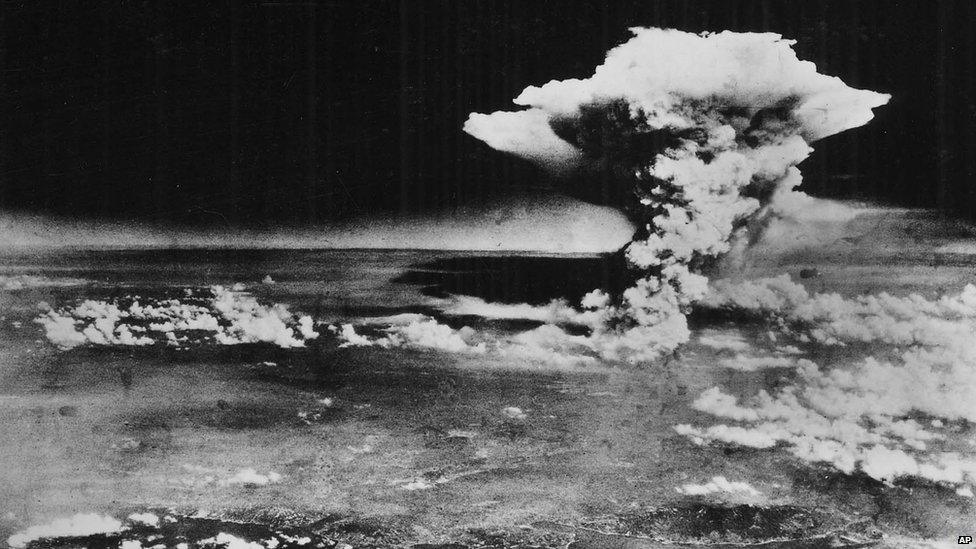
"This is my father," says Miyoshi Yoshie, as she shows her granddaughter a small black and white picture.
"On 7 August 1945 my Dad was found floating in the Motoyasu river. His remains were burnt."
Miyoshi is talking to her about the day a nuclear bomb was dropped on Hiroshima during World War II.
It's 70 years since that bomb killed at least 140,000 people. It was dropped at 08:15 on 6 August.
BBC Radio 5 live have been hearing from survivors to mark the anniversary.
Miyoshi shared her story with Kana and Newsbeat.
Warning: this article contains details which you may find upsetting
Miyoshi transferred to Itsukaichi Elementary School that morning.
It saved her life as it meant she wasn't in Hiroshima.
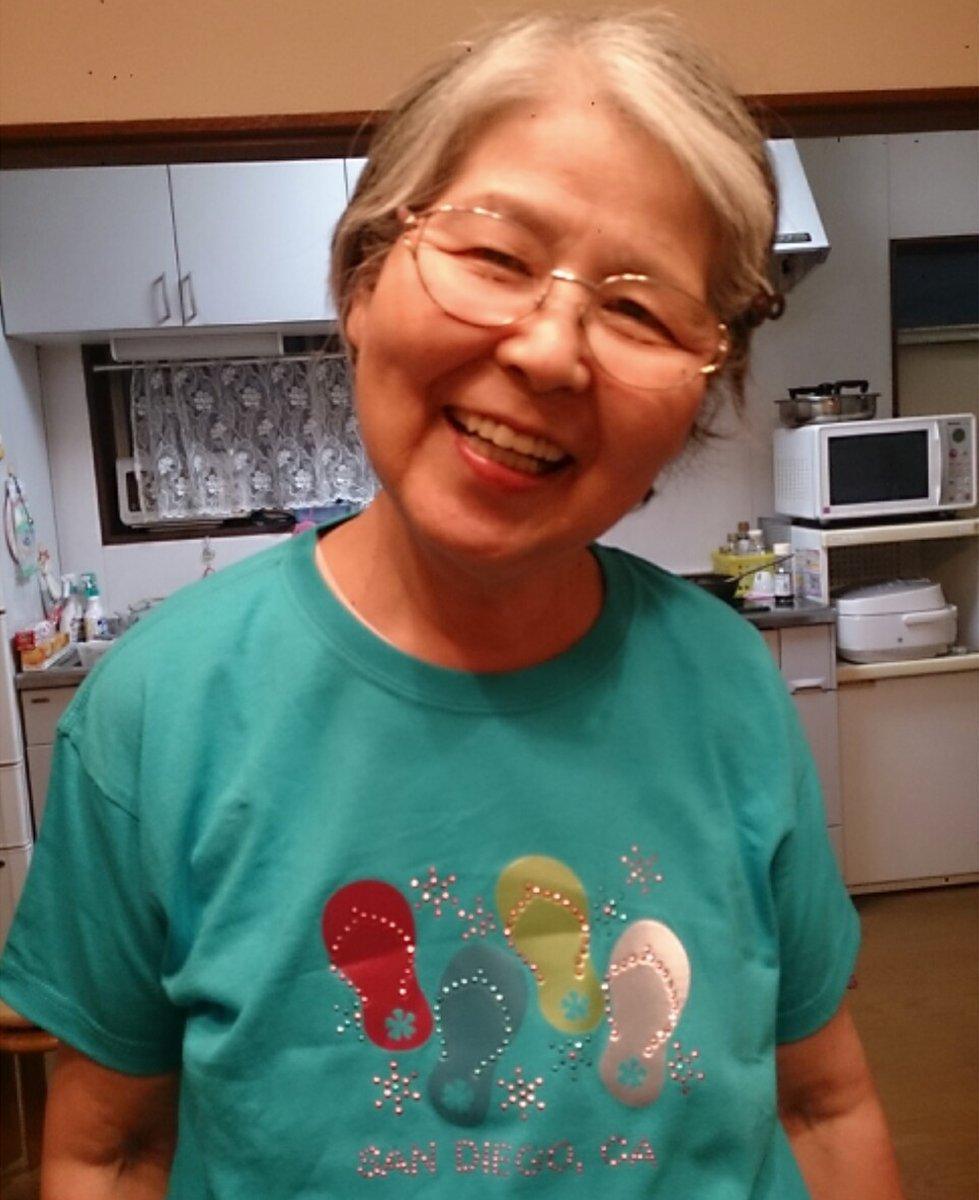
She remembers her mother coming to find her afterwards and "resembling a ghost with torn out clothes".
Their house had been destroyed and her mother had been pulled from the rubble.
Miyoshi was scared by her mother's appearance and ran away.
"I think it was truly inexcusable to be afraid of my own mother," she says.
Around the time the family, like many in Japan, feared an attack so they had a contingency plan.
They'd arranged to meet in Itsukaichi, but by the end of the evening neither Miyoshi's father nor 13-year-old brother had arrived.
The next day her mother travelled back to Hiroshima and found Miyoshi's father dead in the river.
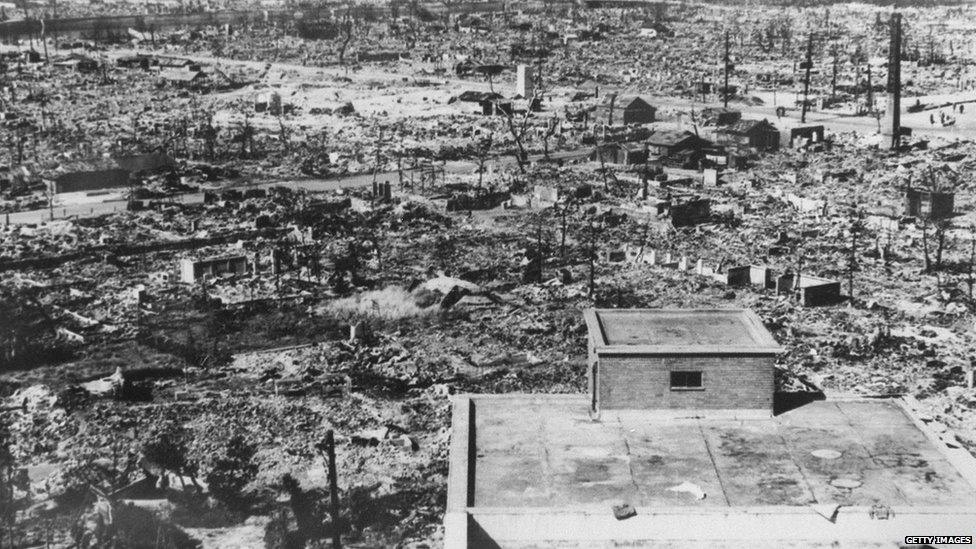
Hiroshima was completely destroyed by the atomic bomb
She returned with a helmet full of her father's bones.
"I accompanied father back home," Miyoshi remembers her mum saying. "They (the bones) were coal-black."
Her 13-year-old brother was never found.
"Mother kept shouting loudly, shouting my brother's name.
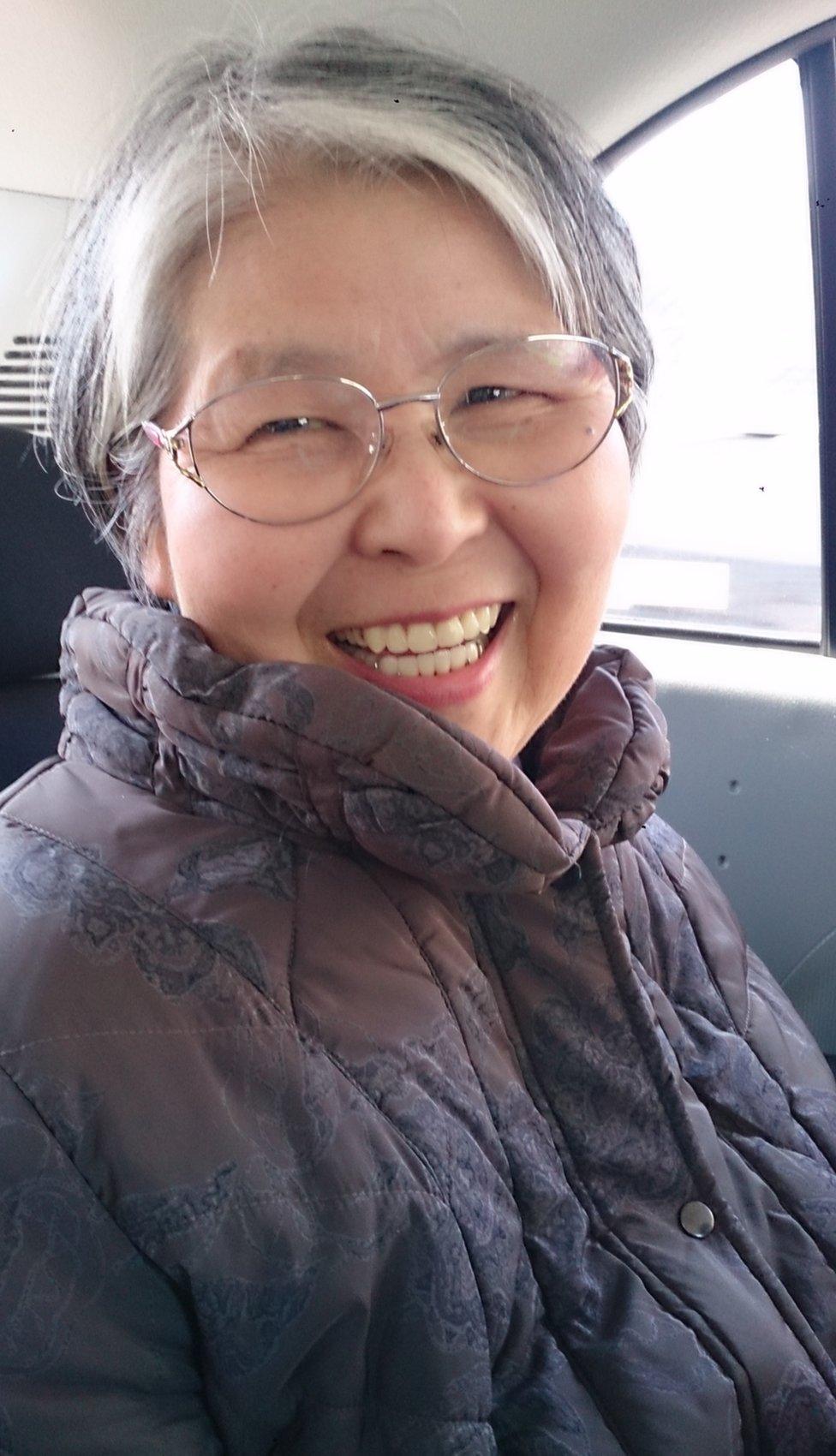
"Every year on 6 August she always called out my brother's name, 'Takashi', 'Takashi', and cried".
Nobody knows exactly how many people died immediately after the blast.
Miyoshi's father and brother were just two of what could have been 80,000 people killed straight away.
People in the city report seeing a "pika", a blinding flash of white light, followed by a "don", an explosive and consuming boom.
Those that died were instantly vapourised in the explosion or burned in the fire storm that followed.
Around 140,000 people are believed to have died within four months of the attack; either from injuries sustained on the day or from radiation poisoning.
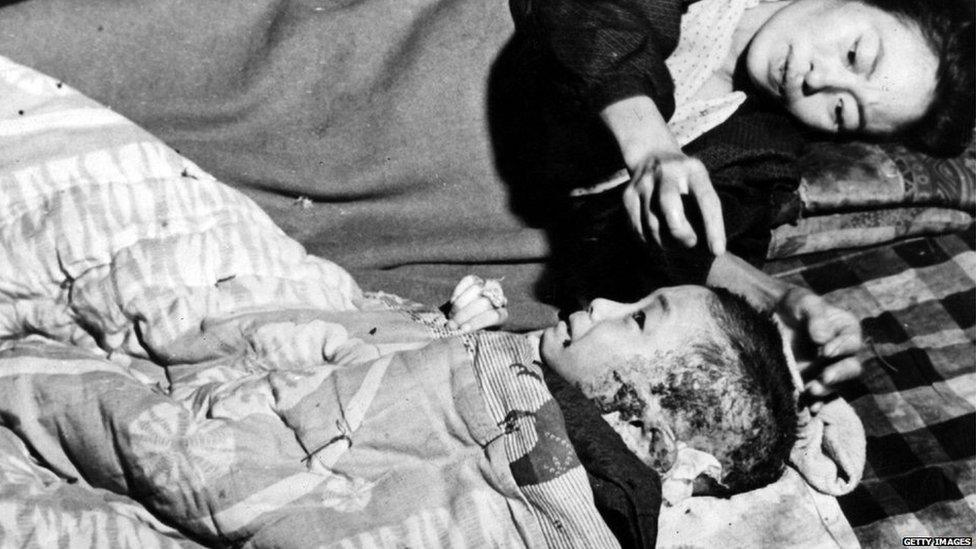
A few days later another atomic bomb was dropped over another Japanese city - Nagasaki.
There, 80,000 people are believed to have been killed.
Radiation poisoning destroyed internal organs and made people's hair fall out. It also caused swelling and burning of the skin.
Miyoshi says the images have stuck with her.
"I remember people trying to hide the their burning faces, arms, and skin.
"Even the survivors suffered."
Follow @BBCNewsbeat, external on Twitter, BBCNewsbeat, external on Instagram, Radio1Newsbeat, external on YouTube and you can now follow BBC_Newsbeat on Snapchat